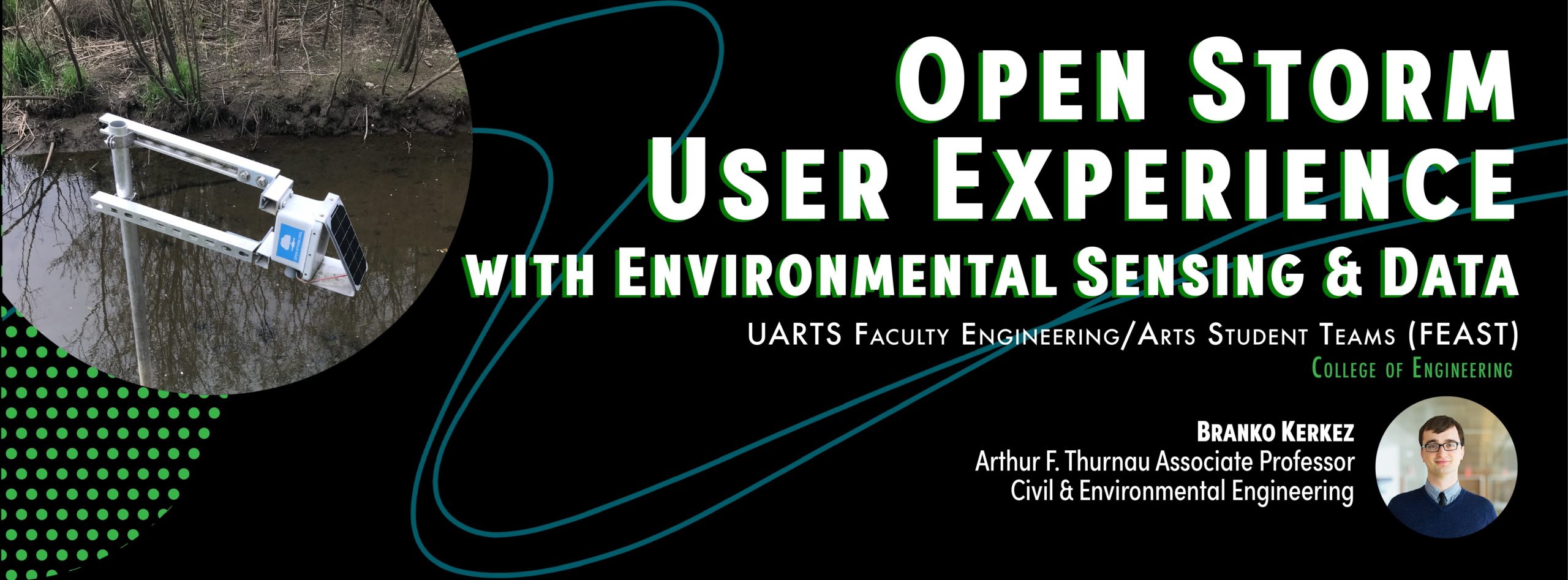
Have you ever wanted to learn how to deploy sensors, interpret data, and learn how communities interact with environmental sensor devices, data, and information? This project is your chance to explore the ultimate combination of technology with real-world applications. Climate change and urbanization have caused problems such as flooding, stormwater runoff, and increased storm events have changed how policymakers, watershed managers, and citizens think about and interact with our water systems.
The Real Time Water Systems Lab works to enable the next generation of smart and adaptive water systems. We run one of the largest sensor testbeds in the United States. Basically, what others are doing for self-driving cars, we are doing for entire cities and watersheds. This project will enable members of the team to use new technologies, such as wireless sensors and robotics, and data that has the potential to transform our urban environments.
The team will be empowered to work with community stakeholders and craft solutions and tools, such as dashboards, that provide scalable management resources and solutions for the Huron River Watershed and the Clinton River Watershed. The team will be asked to consider how users interact with data, citizen science components, and how future technology and sensor may support community objectives and goals.
Faculty Project Lead
 Branko Kerkez is an associate professor of Civil and Environmental Engineering at the University of Michigan. His research interests include water, data, and sensors. His group is working to enable smart water systems, which autonomously adapt themselves to changing conditions using real-time data and controls. His research projects have spanned wireless sensing of large mountain basis, real-time flood forecasting, aquatic robotics, and the development of real-time control algorithms for water systems. He is the founder of Open-Storm.org, an open source consortium dedicated to freely sharing hardware, software, and case studies on smart water systems. He received his M.S. and Ph.D. in Civil and Environmental Engineering, and an M.S. in Electrical Engineering and Computer Science, all from UC Berkeley. He is a recipient of the National Science Foundation’s CAREER award and was recognized by National Academy of Engineering as a Gilbreth Lecturer in 2018.
Branko Kerkez is an associate professor of Civil and Environmental Engineering at the University of Michigan. His research interests include water, data, and sensors. His group is working to enable smart water systems, which autonomously adapt themselves to changing conditions using real-time data and controls. His research projects have spanned wireless sensing of large mountain basis, real-time flood forecasting, aquatic robotics, and the development of real-time control algorithms for water systems. He is the founder of Open-Storm.org, an open source consortium dedicated to freely sharing hardware, software, and case studies on smart water systems. He received his M.S. and Ph.D. in Civil and Environmental Engineering, and an M.S. in Electrical Engineering and Computer Science, all from UC Berkeley. He is a recipient of the National Science Foundation’s CAREER award and was recognized by National Academy of Engineering as a Gilbreth Lecturer in 2018.
